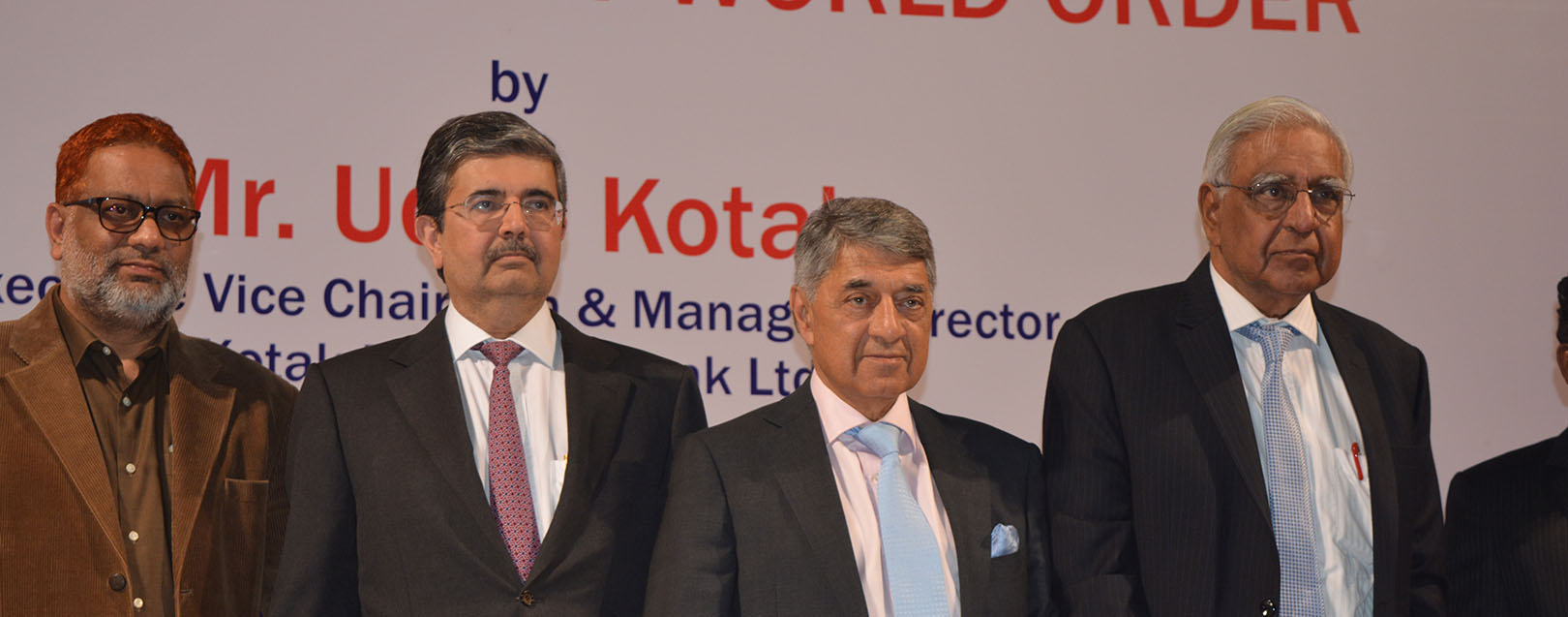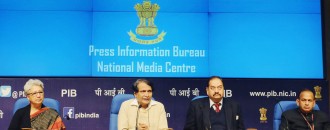
PSU-Banking needs accountability: Uday Kotak
Sairaj Iyer
Uday Kotak, Executive Vice Chairman and MD of Kotak Mahindra Bank, believes that the premise for rejuvenation of India’s economy (post demonetization) and the overall financial atmosphere is to replenish the confidence of the public in banks. Especially since we see receding confidence in recent times due to an uncertain global environment. But to do so there is a need to improve upon governance standards, specifically in PSU banks.
At a talk show organised by the Indian Merchants Chamber, Kotak said that the PSU banking sector is an area that needs immediate attention. Referring to the rising NPAs, and infusion of tax-money into recapitalization of failing PSU banks, he said, “70% of bank accounts are with the PSUs, and I want to raise the question that asks for clear accountability of this public money?”
Kotak shared an example to illustrate the stressed state of loan accounts and books in the banking industry. “There are big numbers being thrown around, but 20% of loan-books are under stress and that is a big issue needing immediate focus. All the ratios and complexity of CRR aside, a stress of 20% tells us a lot. An immediate solution is needed,” he added.
During the session, Kotak was asked if it was viable to off-load bad-assets onto a larger bad-bank of India, which could be capitalised either by the government or a consortium of investors. He averred, “The question is who will manage this bank? If the management is essentially from the existing banks of India, with a similar mind-set, then how will one recover the money? We need to have a solid basis of transferring assets into capital, backed by a ‘solid & stringent’ recovery mechanism. In fact, I’d use the word ‘ruthless’ for recovery.”
The idea to moot a bad bank by the government was recently proposed in the Economic Survey under the name Centralized Public Sector Asset Rehabilitation (PARA). A bad bank would essentially take charge of the largest NPAs in the banking sector and take off the load of the commercial banks finding it difficult to deal with bad loans.
The reason for Kotak to call for ruthless recovery mechanisms is the non-existence of the goods or fixed assets that are either pledged as security collateral or hypothecated, once a loan turns bad. Secondly, banks also have a challenge on selling assets that have a cash-flow. In addition to security, Banks need to have a good understanding of credit skills to ensure a cash-flow based lending. But even if it is there, it is still difficult to sell such assets,” he shared.
According to him, a majority of bad loans with PSU banks are the result of lack of proper governance. As such, India, after China, has the highest involvement of the state in banking among all countries in Asia. “This is one area where the system is not ready to make a change”.
The banking industry also has to deal with risk management systems when dealing with NPAs. This is one area where banks and regulatory bodies have to tread carefully. When asked what his thoughts were about the importance of risk management systems and rising NPAs, Kotak said robust risk management systems may help banks rationalise NPAs as there is a need to incorporate a stronger legal system as very few banks have taken a stand with regard to irregularities in paying off loans. He shared, “Not one PSU bank is willing to take action. And the thinking is that you are safe, if you do nothing.”
India is at the cusp of a potential mega-trend, it must not succumb to populism. It must continue to embrace free trade and globalization. The country will be able to grow and sustain, though there could be potential ills of “jobless growth” due to potential technological advancements.
Kotak additionally felt there is a need to upgrade skills and knowledge and that the banking sector should adopt good risk management practices. “We would greatly benefit from global trade. We must have the confidence now, that Indian business has the power and courage to stand up to the best in the world.”





 to success.
to success.